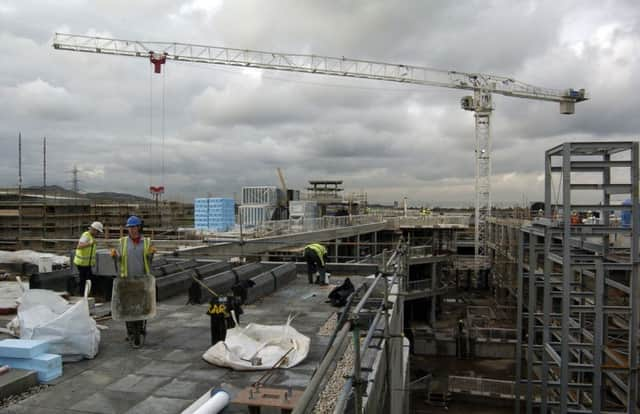Threat to growth from lack of new development


Many older factory sites – often dating back to the 1970s and 80s – are becoming increasingly obsolete, given issues such as the need to be more energy efficient. A growth in the number of companies looking to relocate to more modern premises or expand to take advantage of business growth opportunities is also stoking demand.
But according to the latest bi-annual report from Ryden, seen as a trusted benchmark of the Scottish property marketplace, although the industrial sector headed into the downturn with undersupply in prime areas and “creeping obsolescence” at older estates, demand remained relatively robust. “A long-run lack of new industrial development is now becoming critical in prime locations,” the report warns. As a result, occupiers “must accept higher rents” for suitable buildings.
Advertisement
Hide AdAdvertisement
Hide Ad“Market conditions are conducive to this as strong demand from manufacturing and engineering sectors as well as the distribution market serving the growth of online sales meet limited supply, rising rents and reducing incentives,” says the report.
The research, covering the six months to October, notes that the uncertainty around the outcome of the Scottish referendum had continued to drag on the property market as a whole into autumn.
But since then Ryden partner Mark Robertson said the market had “largely resumed normal business” and that continuing economic growth provided a positive backdrop.
Although the past 12 months have seen strong office market performance, the report said that masked a lull since the summer as referendum uncertainty and the lower oil price depressed demand.
Glasgow saw a relatively quiet six months with a significant drop off in the number of larger office deal completions in both the city centre and outskirts. But the recent slowdown there is seen as a temporary situation with a number of large deals expected to complete before year-end.
Take-up of office space in Edinburgh fell by 9 per cent in the six-month period and the survey pointed to a gradual tightening in the supply of quality office stock in the city centre, where no new major developments are due on stream until late in 2015.
After a long run of growth, the office market in Aberdeen saw a relatively poor six months with the 51 deals during the period representing a 29 per cent fall on the previous six months.
SUBSCRIBE TO THE SCOTSMAN’S BUSINESS BRIEFING